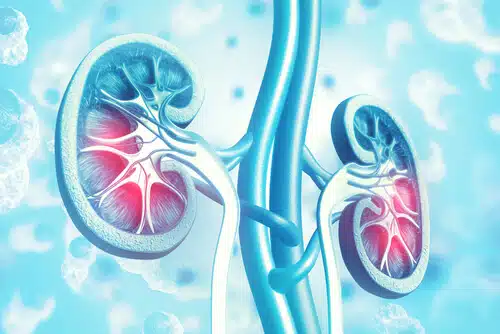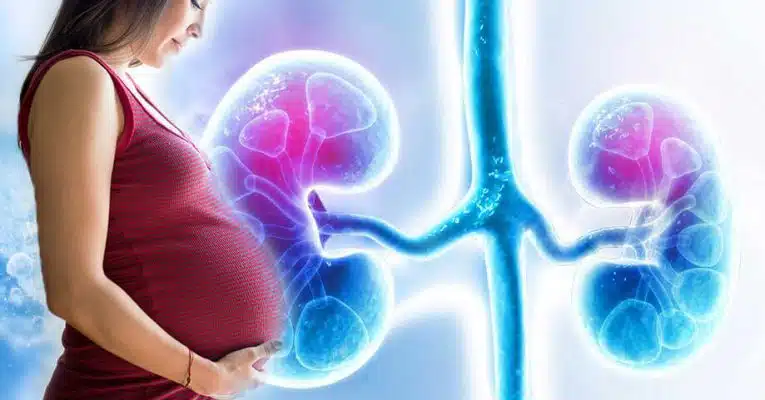During life, kidney functions may be impaired for any reason, and a person may struggle with kidney failure for several years. In these cases, one solution is to have a kidney transplant. Although this procedure will have numerous benefits for the recipient, like any other organ transplant operation, it would also have complications that should be considered.
One of the most critical considerations is for the women of childbearing age, who are likely to become pregnant or are prone to it, and yet are forced to have a kidney transplant or renal transplantation. As you may guess, this operation can have effects on pregnancy.
Join us in this article to take a look at some of the points and issues to be considered before taking any action to get pregnant. In some cases, be sure to discuss them with your doctor. Do not forget that TebMedTourism Co. consultant medical doctors are ready to answer your questions with open arms.

How long should be waited between a kidney transplant and becoming pregnant?
Typically, 4 weeks after renal transplantation, ovulation cycles begin, and women who have not undergone menopause are likely to have their regular menstrual periods at 6 to 9 weeks apart.
Although the optimal interval between kidney transplantation and pregnancy remains a topic of debate, in the United States, an interval of about a year is recommended. Whereas, in Europe, it is recommended to wait for nearly 2 years. Adherence to this pause is essential.
The reason is that during this time, the medication regimen of the recipient person should have become stabilized, it would not be harmful to the fetus, and on the other hand, the new organ has achieved its optimal function.
During pregnancy and planning for that, what adjustments should the renal transplantation-related medications have?
One of the main questions for women who have recently had a kidney transplant is whether the pills they take can have negative effects on the fetus and their pregnancy.
Although common medications taken after a kidney transplant will not generally be harmful to both the mother and the baby, one of the most notable post-kidney drug regimens is the use of immunosuppressive drugs. These drugs can be transmitted and cause changes in the immunological profile of the infants born to kidney transplant recipients, and, therefore, should be carefully monitored before any attempting. Several drugs can be used for this purpose, and therefore, it is important to consult with a doctor to find the optimal medicine with the least side effects for the fetus. Also, the dose of medications taken during pregnancy should be monitored regularly by a doctor.

Would the babies who have born to mothers with a history of kidney transplantation experience any problems in the future?
Compared to the statistics related to normal mothers, mothers who have had a kidney transplant are three times more likely to give birth to premature or low birth weight babies. The risk of miscarriage is not much different unless the mother is taking certain immunosuppressive drugs such as CellCept or Myfortic. In this case, it may not even be an abortion, but the baby happens to born with congenital infections and birth defects. Therefore, in these cases, the necessary information and knowledge should be given to the mother by the medical team.
But in general, according to the National Transplantation Pregnancy Registry (NTPR), babies born to mothers with a history of kidney transplantation will sustain normal growth and development in the future and will not experience any particular problems.
Which medical consequences of pregnancy can jeopardize the success rate of kidney transplantation?
Although it is critical to examine the effect of kidney transplantation on pregnancy, the opposite is also the case: Can pregnancy make it difficult for the mother’s body to accept the new organ? There are some medical consequences of pregnancy that need to be re-examined if a kidney transplant has been performed on the mother, because these changes may lead to the rejection of the new organ: for example, high blood pressure or preeclampsia. Although it could have also experienced by pregnant women without a history of transplantation, it is nearly three times more likely to happen in kidney recipient mothers. Other examples would be proteinuria in the urine and other complications that should be monitored by the medical team. Besides, these mothers are more likely to get infections during pregnancy.
Does kidney transplantation affect males’ fertility?
Much has been said about mothers and the effect of kidney transplantation on fertility and pregnancy, but what about men? It should be noted that according to medical findings, men rarely experience any particular problem after organ transplantation, even if they are taking certain immunosuppressive drugs.
Therefore, if you are a man and have experienced problems with fertility after a kidney transplant, you need to consult your doctor to get a regular fertility test. There is a chance that a specific medication in your treatment has caused this problem.

TebMedTourism medical consultants are ready to answer your questions.













